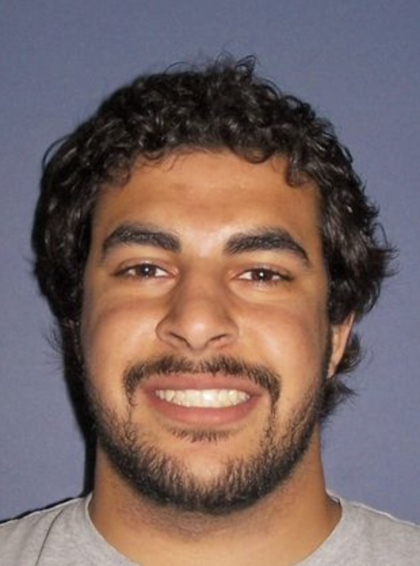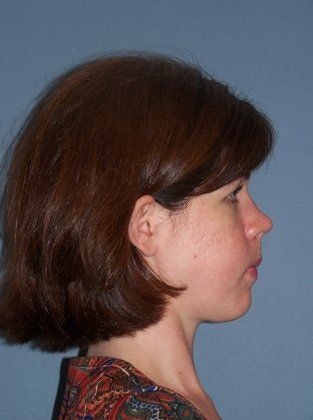Jaw Surgery
Do you have misaligned jaws and teeth that impede your ability to eat, speak, and swallow comfortably?
Jaw surgery, or orthognathic surgery, can improve the appearance and function of your teeth and jaws.
Kellyn Hodges Orthodontics in Philadelphia, PA, can work with an oral surgeon to permanently correct your jaw.

What Is Corrective Jaw Surgery
and How Can It Help?
Severe malocclusion such as overbites and underbites can significantly impact your life. Common concerns people experience when they have misaligned jaws and teeth include:
- Difficulty biting and chewing
- Problems with swallowing
- Speech impediments and difficulty enunciating
- Excessive wear of the teeth
- A small or protruding chin
- Facial asymmetry
- Lips that don't close properly
- Obstructive sleep apnea
- TMJ disorder
Dr. Kellyn Hodges works with a skilled oral surgeon who provides orthognathic surgery to realign the jaw and correct these issues. Through a process of orthodontics and surgery, we can realign your bite and teeth, leading to an attractive smile, improved facial harmony, comfortable eating, articulate speech, and more.
Ready to Correct Your Jaw Alignment With Surgery? Get Started With a Consultation
Orthognathic surgery is a lengthy process that can require about two to three years to complete, but the results are truly transformational. Our orthodontist has seen firsthand how orthodontics and jaw surgery make patients feel more comfortable in their own skin and significantly elevate their quality of life. If you are experiencing pain or difficulties when chewing, or feel that your bite is substantially misaligned, you may be a candidate for corrective jaw surgery.
Let the team at one of our orthodontics offices in Bala Cynwyd, Bensalem, or Montgomeryville examine your teeth and bite to determine if you're a candidate for this maxillofacial surgery. Fill out our form or give our offices serving Philadelphia, PA, a call at:
(610) 617-0700
Philadelphia, PA, Patients Are Grateful for Our Exceptional Oral Care
Dr. Hodges is simply exceptional!! From the moment you step into her office, you're greeted with warmth and professionalism. Her expertise is evident in the care she and her staff provides. Dr. Hodges and her staff ensures I receive personalized treatment tailored to my personal wants and needs. I am still in treatment, but the results are speaking for itself. Her friendly demeanor and commitment to excellence, make her the perfect choice for my orthodontic care. I highly recommend Dr. Hodges to anyone seeking a top-notch orthodontist.
View on GoogleI highly recommend this office to everyone looking for a beautiful and healthy smile! Our family is very thankful for the amazing service we get here. The staff and doctors are very professional, knowledgeable and caring. They actually listen to your concerns! My oldest son finished treatment last summer, and, not only did he get gorgeous results, he has more confidence in himself and that is priceless!! My youngest is still in treatment and we are loving and trusting the process.
View on GoogleThe Orthognathic Surgery Process
Helping you achieve a healthy, beautiful smile is our priority. Our Philadelphia team can coordinate your oral surgery and provide orthodontic treatment for a streamlined experience.
A Deep Dive Into the Recovery Period After Your Surgery
Following surgery, you must follow your doctor's instructions to heal properly and experience the best possible results. Your instructions will include:

Attending Follow-Up Appointments
We will schedule follow-up visits at one of our Philadelphia, PA, offices throughout your recovery to monitor your progress. During these appointments, our team may review your post-surgical instructions, give you tips on how to care for your oral health as you heal, remove stitches or your oral splint, and take X-rays.

Eating a Soft Food Diet
You won't be able to chew well after surgery, so you will need to eat a diet of liquid and soft foods exclusively until your doctor determines you can resume eating solid food. Foods we recommend include soups, shakes, yogurt, pureed meals, and lots of water.
Another Orthognathic Patient
Treated at Our Philadelphia Practice
FAQ About Jaw Surgery
Does the process only require orthodontics and surgery?
While your orthognathic surgery process may only require braces and jaw surgery, other procedures incorporated into your treatment may include a frenectomy, tooth extractions, surgical splints, and wiring of the jaws to facilitate proper healing. Our orthodontist and an oral surgeon will give you a better idea of what your surgical process will entail during a consultation.
Will I lose sensation in my jaw?
It is normal to experience some numbness for several weeks after maxillofacial surgery, but it is unusual to experience permanent loss of sensation.
More 5-Star Reviews From Philly Patients "I will always be grateful."
Everyone in this office was extremely polite,professional and will do anything to make sure your taking care of this people did the impossible in my mouth they went beyond my expectations amazing wow I will always be grateful God bless
View on GoogleDr Kellyn Hodges Orthodontics practice is a place of professionalism and kindness. Her entire staff is very cordial and pleasant. The orthodontists were great. The front desk staff and the dental hygienists were wonderful. I was a client for about 36 months and I was treated very well the entire time. I am well pleased with my teeth.
View on Google






